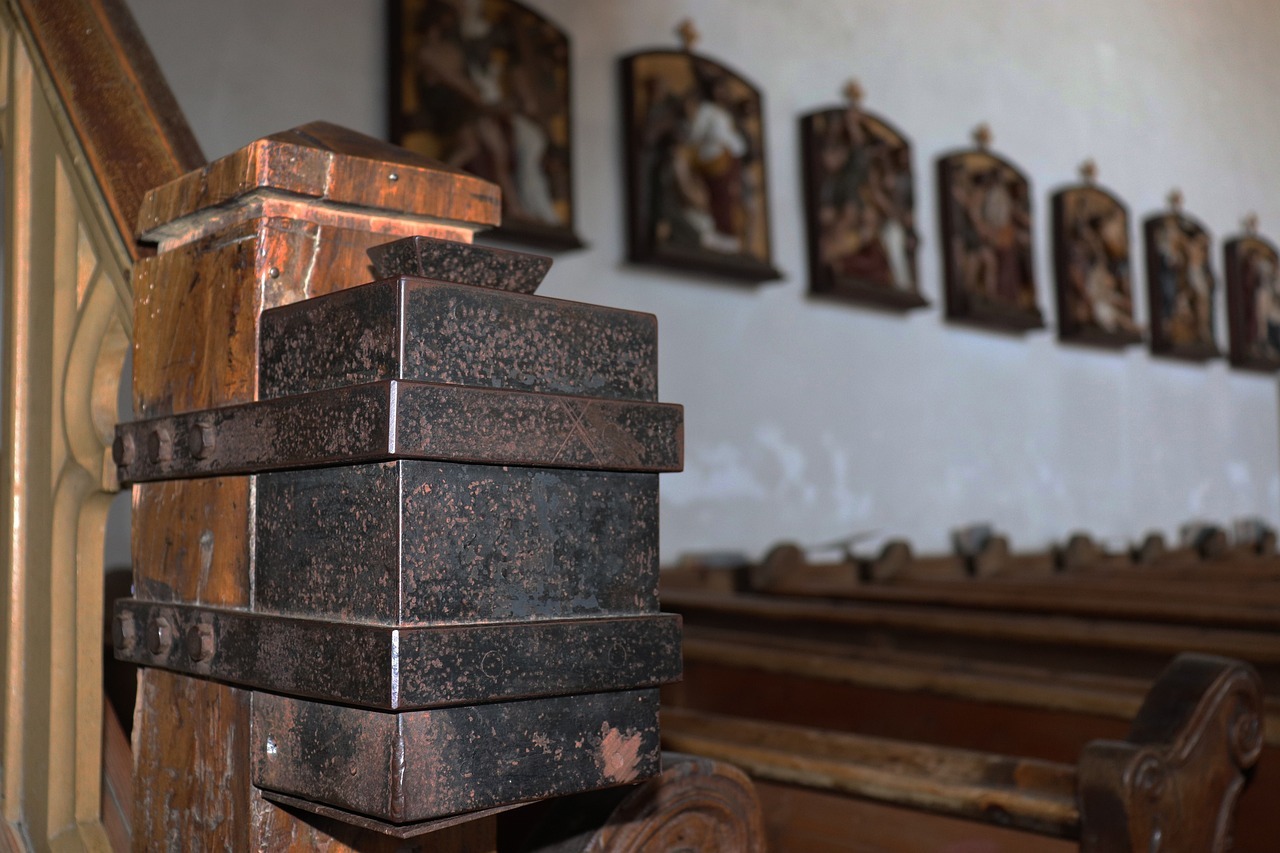Reflection for the Thirty-Second Sunday in Ordinary Time B / Twenty-Fifth Sunday
after Pentecost
Readings:
I Kings 17: 10-16 (RM) or 8-16 (RCL); Psalm 146; Hebrews 9: 24-28; Mark 12: 38-44.
Eighteen thousand dollars. $18,000. U.S. dollars. She could hardly believe it.
When the parish priest, a friend of hers, asked to call on her, she probably guessed it had something to do with the local diocesan bishop’s recently announced capital campaign. She may have known that each priest in the diocese had been asked to contact his parishioners ostensibly to ask for a donation to the campaign. Quite possibly she did not know that an assessment had already been made that determined the specific amount that the priest was to request as a contribution from each individual parishioner or each family.
A single woman, she teaches high school in a rural school district. And Father asked for a contribution of $18,000. Not for the upkeep of the parish, not for special pastoral projects, not for exceptional expenses that could not be covered any other way. And certainly not for the poor. This money was to be sunk into an investment scheme intended to produce interest income as future revenue. As if a diocese that was being pummeled by wave after wave of clergy sexual abuse revelations, and was soon to declare bankruptcy, had anything like a viable future.
This story is true and took place just a few years ago. It’s not a perfect analogy to this week’s Gospel reading: the teacher was financially self-supporting, not impoverished. The priest did not seek to enrich himself but was clearly following orders from higher up in the local church hierarchy. But it may tell us something about donations, financial means, and the purposes to which the gift is put.
Verses 38-44 fit together only at an odd angle. New Testament scholars disagree on what point Jesus was trying to make by drawing his friends’ attention to the woman putting two very small coins in the Temple collection box, and just what her backstory as an indigent widow was intended to prove, apart from a sad irony.
What Jesus had said in verses 38-40, on the hypocrisy of the Temple functionaries, is consistent with his denunciations of the scribes and Pharisees which reach a pitch of rage in the later Gospel account of Matthew. The reference to “widow(s)” ties the two passages together. In this society, widows of any social class without a male relative were vulnerable to exploitation by lawyers or scribes who were empowered to administer any goods on their behalf.
The most apparent surface interpretation is: scribes=bad, poor women=good. Scribes devour the poor to secure their own honour and position. The poor give generously even the little they have to God. Using this premise, a homiletic point can be drawn that the woman is a symbolic figure representing Jesus himself, who was about to give his very life on the cross. At least that identifies Jesus with a female.
There are scads of problems here. First, the widow is a figure observed at a distance, not a person who could tell her own story and explain her motivation. We don’t actually know what motivated her. On a practical level she didn’t need to give both pennies – she could have kept one back and no one would blame her. Was she a victim of something – piety, or fear, or simply the Temple tax imposed on all Jews? And how is this an act of giving “to God?”
God doesn’t need our money any more than God needed the animal sacrifices denounced by Amos and other ancient Hebrew prophets. The money was going into the Temple treasury as income to maintain a sizeable operating budget. The Temple treasury served as well as a safe-deposit box for valuables held by families and individuals. This made the Temple building a tempting target for invading armies.
Commentators do point out that what we are reading is not a disinterested observation, but a polemic account with a sharp, shocking contrast built in. But why? Is Jesus commending her or lamenting her action? Is he presenting her as an exemplary paradigm of generosity or a victim of social inequity and exploitation? It’s not clear. Commentator Seong Hee Kim tries to offer a positive alternative: the woman is an active agent living in the space between Caesar’s empire and God’s reign, who
“throws out all she obtained from the ruling imperial system and radically chooses to live within the kingdom of God.”
“What does our God desire? Live justly, love mercy, walk humbly with our God.”
In any case, let’s just hope that the scribes didn’t simply add her two cents to their capital campaign.
© Susan K. Roll
Susan Roll retired from the Faculty of Theology at Saint Paul University, Ottawa, in 2018, where she served as Director of the Sophia Research Centre. Her research and publications are centred in the fields of liturgy, sacraments, and feminist theology. She holds a Ph.D. from the Catholic University of Leuven (Louvain), Belgium, and has been involved with international academic societies in liturgy and theology, as well as university chaplaincy, Indigenous ministry and church reform projects.




